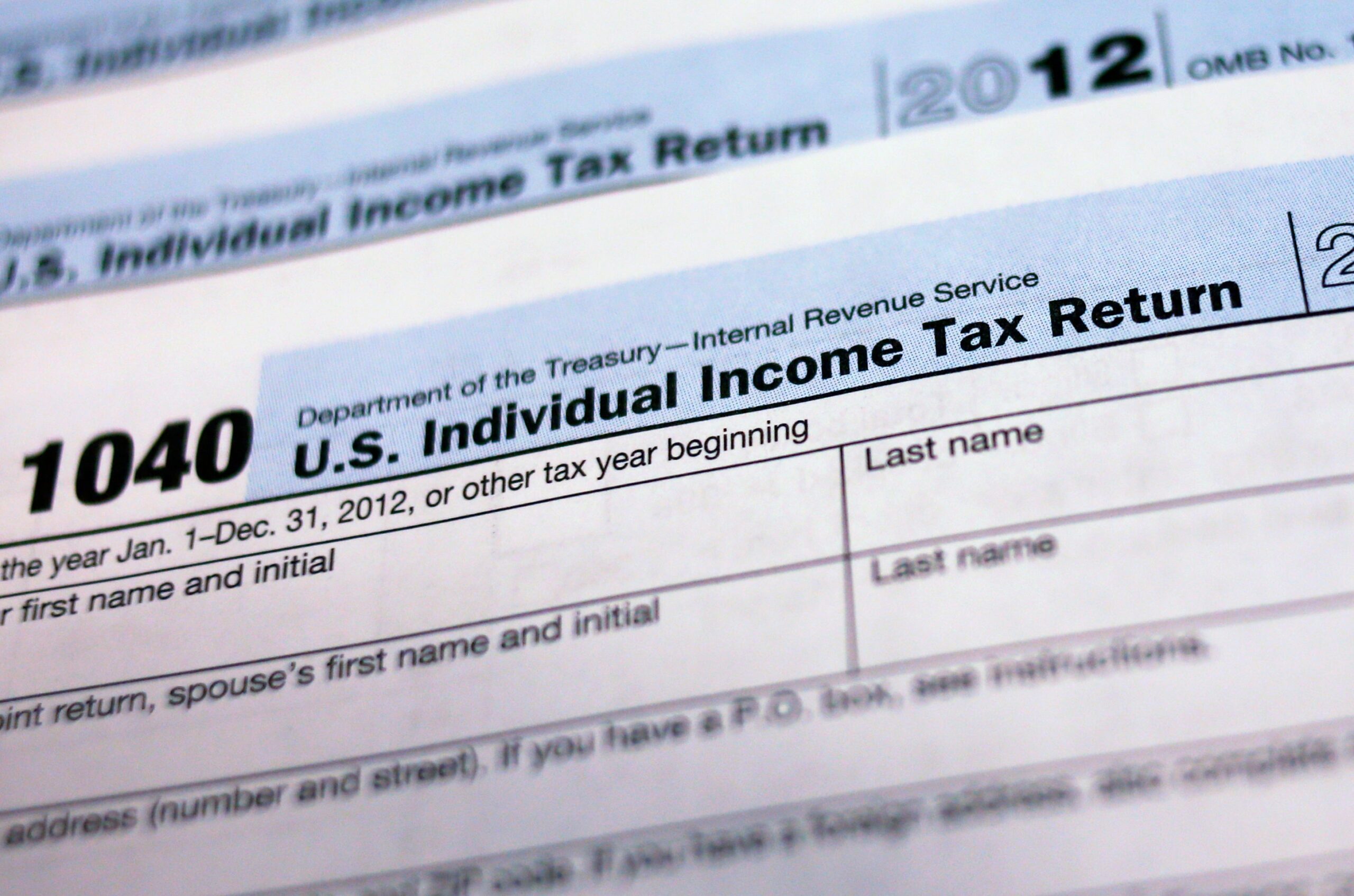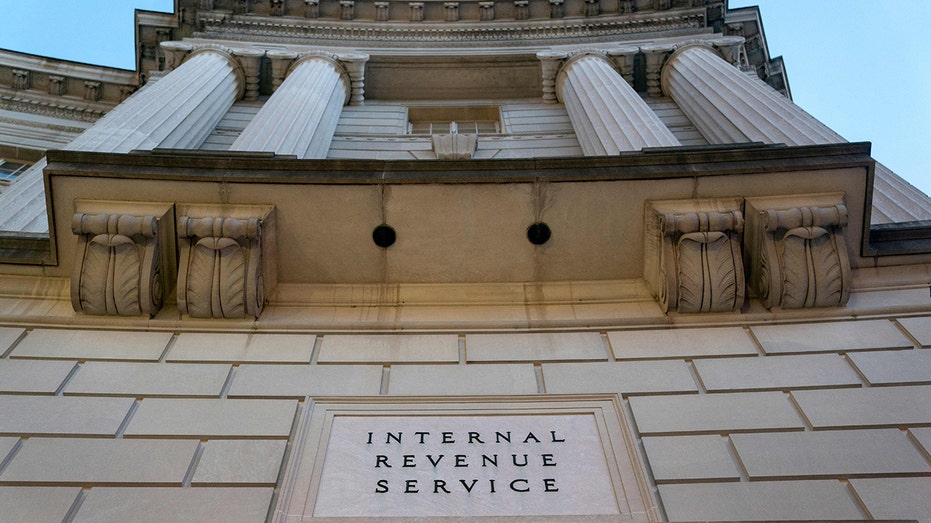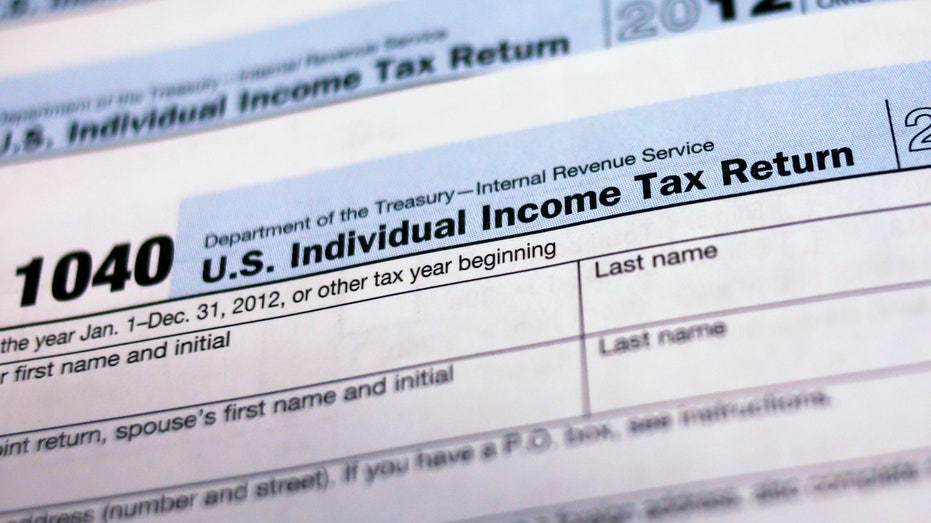
Check out what’s clicking on FoxBusiness.com
Tax refunds can serve as a financial lifesaver for millions of Americans, but scammers are increasingly preying on unsuspecting taxpayers in an attempt to steal any money owed by Uncle Sam.
With fewer than two weeks remaining until the filing deadline, the IRS is urging taxpayers to be cautious about common scams that are designed to trick people into giving up either sensitive information or money.
“Scammers are relentless in their attempts to obtain sensitive financial and personal information, and impersonating the IRS remains a favorite tactic,” IRS Commissioner Danny Werfel said in a statement.
REMOTE WORKERS FACE A DOUBLE TAXATION THREAT
In 2023, the IRS received 294,138 identity theft complaints, the second most in history. Individuals who are victims of tax-related identify theft schemes typically have to wait about 19 months for the IRS to resolve the problem and issue a refund.

View of the Internal Revenue Service (IRS) building in Washington, DC, on January 24, 2023. (STEFANI REYNOLDS/AFP via Getty Images / Getty Images)
These are the most common types of scams – and how to protect yourself from them.
Phishing emails
Fraudsters may send out emails or other messages to taxpayers pretending to be the IRS or another legitimate entity.
Those messages then “lure the victims into the scam” with different ruses, like enticing them with a phony tax refund, or threatening them with false legal or criminal charges for tax fraud, the IRS said.
Scammers may also use alarming language in text messages that insinuate a taxpayer’s account has been placed on hold or has been reported for unusual activity and then provide a bogus “solutions” link that claims to restore the recipient’s account.
YOUR TAX BILL COULD BE MUCH LOWER THIS YEAR – HERE’S WHY
“I would be suspicious of any email, phone call or text,” Lisa Plaggemier, executive director of the National Cybersecurity Alliance, told FOX Business. “Because the vast majority of communication that the IRS does is via USPS.”
The IRS also advises taxpayers to never click on any unsolicited communications claiming to be from the agency, as it may load malware or ransomware that prevents you from accessing your files.

U.S. 1040 Individual Income Tax forms. (Reuters/Shannon Stapleton / Reuters Photos)
Identity theft
In 2024, tax scams heavily rely on the theft of personal information, which can be used to fraudulently file a return or commit other financial crimes.
The IRS requires that taxpayers submit certain personal information in order to verify their identity, including home address and Social Security number. But due to the number of data breaches in recent years, malicious actors have access to warehouses of personal information for sale on the dark web.
HERE’S EVERYTHING YOU NEED TO KNOW BEFORE FILING YOUR TAXES
“You have to assume that all your information is already publicly available,” Plaggemier said. “So it basically comes down to, these days, independent verification of anything that you get as an email or a phone call or even snail mail.”
These messages will typically try to bate individuals into clicking on fraudulent links claiming to be IRS websites or other online tools. Taxpayers often will find out that they are victims of identity fraud when they go to file their tax returns and the IRS says they have done so already. Scammers do this in order to claim the tax refund that the IRS legitimately owes you, or to fraudulently claim one in your name.
“I’ve heard some people say, ‘Well, I owe taxes this year. I don’t care if somebody files on my behalf, they can pay my tax bill,'” Plaggemier said. “Well, guess what? When they file on your behalf, they aren’t using your real numbers. They’re making up the numbers and using a phony W2, so they get a refund. That’s why it creates such a problem.”
How to protect yourself
There are several ways to protect yourself this tax season.

The Internal Revenue Service (IRS) building on Thursday, Aug. 18, 2022 in Washington, DC. (Kent Nishimura / Los Angeles Times via Getty Images) / Getty Images)
Be on the lookout for any suspicious messages or irregular types of communication.
The IRS says that it will “never initiate contact with taxpayers” by email, text or social media regarding a bill or tax refund, and that it will not call a taxpayer without sending them a bill in the mail first. It will also not demand an immediate payment, or ask for a credit or debt card number on the phone.
CLICK HERE TO READ MORE ON FOX BUSINESS
Scammers also try to use fear tactics to pressure taxpayers to hand over their funds before they have any time to consult outside parties or independently verify the message. Do your research – and don’t rush.
“If the IRS is telling you that you need to do something urgently, that’s like a red flag to begin with,” Plaggemier said. “Because if you’ve ever had an issue to sort out with the IRS, you would know that nothing happens on an urgent basis.”
In future filing seasons, Plaggemier said that one way to cut off scammers is to file your tax return as soon as possible. That prevents fraudsters from trying to file on your behalf, because the IRS will just kick back the return.
“Filing as fast as you can, it’s a good thing,” she said. “But I would say to people now, who are down to like these last 10 days, that the rush you’re in and the sense of panic that you feel can make you more susceptible to being defrauded. Try to keep your wits about you and just slow down enough to pay attention to what’s happening.”
Most taxpayers will have until Monday, April 15 to submit their returns or request an extension. The IRS expects more than 146 million individual tax returns to be filed this year.







